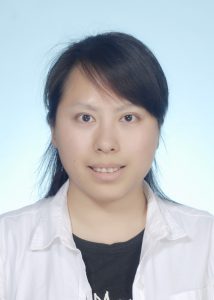August 23, 2016
The FreeBSD Foundation is pleased to welcome Kylie Liang to the Board of Directors.
We sat down with Kylie to find out more about her background and what brought her to the Foundation. Please take a moment to see what she has to say and join us in welcoming him to the board!
Tell us a little about yourself, and how you got involved with FreeBSD?
I was born in Sichuan province of China, which is famous because of spicy food. I am married with 1 child and live in the city of Shanghai in China. My husband is a software developer and he started to like coding since he was a teenager.
I got my master’s degree from ICT (Institute of Computing Technology), Chinese Academy of Sciences and started my first job as a *NIX driver developer at Intel in 2005. In 2014, I got a call from Microsoft offering me to extend my career in open source areas, including FreeBSD. It surprised me that Microsoft is working on open source projects, but it is true that Microsoft is more open. I did some research on FreeBSD. Do you know a part of Mac OS X is based on FreeBSD as well as Sony Playstation4, NetApp ONTAP, Juniper JunOS and many famous products? I joined Microsoft and started to lead the project called FreeBSD Integration Service to get FreeBSD running well on Hyper-V and Azure. To promote our work and to understand the FreeBSD ecosystem, I started to participate in FreeBSD events where I was inspired by this technical community. Many technical experts are passionate in contributing to the FreeBSD project. They sit down together to review code, discuss creative ideas, and hack each night during events. I am so proud that I am working on FreeBSD.
Why are you passionate about serving on the FreeBSD Foundation Board?
FreeBSD is a great operating system which has advanced networking, storage and security features. I work with NetApp, Citrix, Array Networks and many other FreeBSD based virtual appliance vendors to bring their products to Azure, the public cloud platform provided by Microsoft. During these engagements, I have been impressed by how great those FreeBSD-based products are. As you know, the BSD license places minimal restrictions on future behavior, which allows BSD code to remain Open Source or become integrated into commercial solutions, as a project’s or company’s needs change. Most of the time, people are not aware of how many great products are based on FreeBSD. How can we make it easy to explore the FreeBSD ecosystem and community to attract more contribution and more companies choosing FreeBSD to build their products? I want to help drive this process through serving on the FreeBSD Foundation Board.
On the other side, most FreeBSD developers are contributing code to FreeBSD after work. However, to get the FreeBSD project to really run well, full time roles are still needed. And to provide a good development environment, computers and other equipment are needed. The FreeBSD Foundation board takes the responsibility to support the FreeBSD project. It is important work but not easy. I want to contribute to building the development environment for FreeBSD.
What excited you about our work?
The FreeBSD Foundation supports both the development and the popularization of FreeBSD. I am so excited to participate in the work to promote the FreeBSD project and build a friendly environment and ecosystem for FreeBSD development and production. I want to enable smart and passionate BSD developers to continue to focus on their coding work, because a line of code may change the world someday.
I am now living in China. There, I can act as a bridge between Chinese companies and the FreeBSD community to help drive FreeBSD adoption. Through my leadership role in the FreeBSD Foundation, I will help promote FreeBSD in China and also represent the Foundation at conferences and events in my region.
How do you see your background and experience complementing the current board?
Most current board members are senior FreeBSD developers and/or researchers. They know the architecture and code of FreeBSD very well. Similar to them, I have a driver development background, but I also have the skills of product management. I am familiar with promoting a product and doing so from the perspective of customers. I am familiar with Chinese open source communities and social media. In other words, I can leverage my skills and networking to promote FreeBSD in end-to-end scenarios in China.
